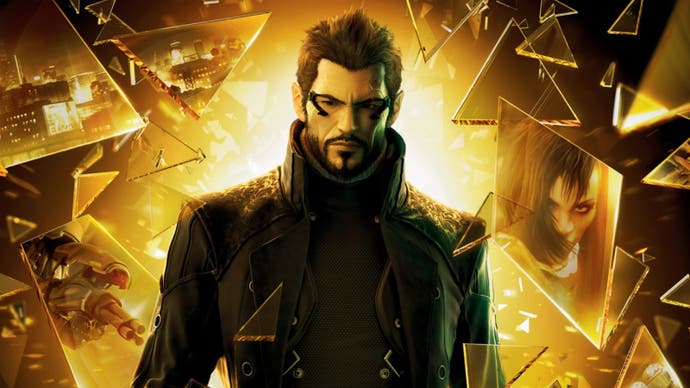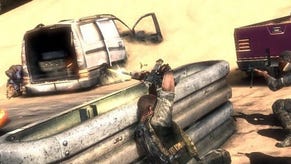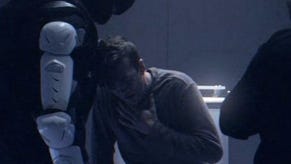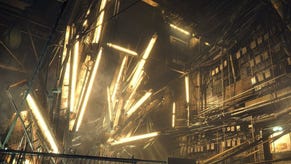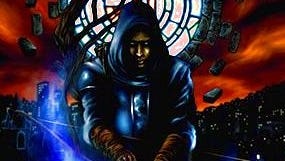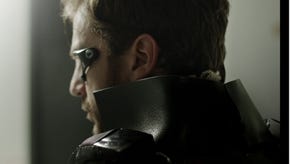Eidos Montreal founder slams decline of Square Enix's Western studios as "train wreck in slow motion"
And discusses rumours of Square Enix-Sony buyout.
Stephane D'Astous, founder and former boss of Deus Ex developer Eidos Montreal, has described Square Enix's handling of its Western studios as a "train wreck in slow motion" in an explosive new interview.
Speaking to GamesIndustry.biz, D'Astous criticised Square Enix's past management of its various Western studios and suggested the recent sale of Eidos Montreal and Crystal Dynamics could have been motivated by a desire to court a buyout by PlayStation.
"It was a trajectory that could be predicted," D'Astous said, discussing the decline of Square Enix's Western studios, and Eidos Montreal in particular. "I left because things were missing at head office. [Pre-Square Enix] Eidos has a great tradition of development teams, but they don't have superior knowledge of how to sell their games. And that was quite clear."
D'Astous quit Eidos Montreal in 2013, two years before Darrell Gallagher, boss of sister studio and Tomb Raider maker Crystal Dynamics followed suit from his own company. And two years after that, the Square Enix-owned Hitman developer IO Interactive split off entirely, after negotiating a management buyout.
Earlier this year, Square Enix offloaded Eidos Montreal and Crystal Dynamics to Embracer for $300m, a figure widely seen in the industry as a fire-sale deal.
That deal leaves Square Enix as a slimmer company, and one now almost exclusively focused on its own Japanese development studios.
"It was clear that we had great IPs that were sleeping on the shelf. Legacy of Kain that was discussed, but wasn't as strong as Deus Ex and Thief," D'Astous said, reflecting on Eidos Montreal's legacy.
"[With Thief,] we did our best, and we struggled, and that's life in development in games," he continued. "You don't hit it off all the time. And we were close, but just missing some finishing touches."
A year before D'Astous left, he recalled a tense period where Square Enix had said it was disappointed in the company's financial performance - and that it had been due to turn a $65m profit despite not having any "deliverables" that year.
"We were dumbfounded," D'Astous said. "The pressure was starting to build, and my employees towards me, me towards my superiors. I think when people are in a crisis situation where there's a lot of situations, you do see their core behaviour or values. And I didn't like what I saw.
"There was really a lack of leadership, courage, and communication. And when you don't have those basic things, no employee can do their job correctly - especially when you're heading a studio.
"I was losing hope that Square Enix Japan would bring great things to Eidos. I was losing confidence in my headquarters in London. In their annual fiscal reports, Japan always added one or two phrases saying, 'We were disappointed with certain games. They didn't reach expectations.' And they did that strictly for certain games that were done outside of Japan."
D'Astous said Square Enix "was not as committed as we hoped" to its Western studios, and that he has heard rumours of an interest from Sony in buying the company - though only its Japanese portions.
"There are rumours, obviously, that with all these activities of mergers and acquisitions, that Sony would really like to have Square Enix within their wheelhouse. I heard rumours that Sony said they're really interested in Square Enix Tokyo, but not the rest. So, I think [Square Enix CEO Yosuke] Matsuda-san put it like a garage sale.
"It was a train wreck in slow motion, to my eyes, anyway," he concluded. "It was predictable that the train was not going in a good direction. And maybe that justified $300m. That's really not a lot. That doesn't make sense."
In May, Eidos Montreal and Crystal Dynamics' new owner Embracer said it was happy for the companies to sit at break-even point until new games were released, which won't be for several years.
The full interview on GamesIndustry.biz is well worth a read.
